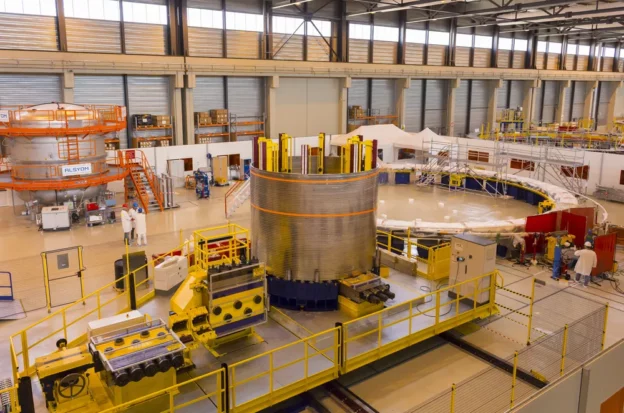The UK government has rejected a proposal to join the ITER nuclear fusion project as an official member, after losing access to the project as a result of Brexit. Instead, it has decided to focus on UK-based merger efforts, both public and private.
United Kingdom and the ITER nuclear fusion project
ITER, the world’s largest fusion experiment, currently under construction in France, is expected to be completed in 2025 after several delays. This project is supported by a broad international collaboration that includes China, India, Japan, Russia, South Korea, the United States and the European Union.
Although the UK had access to ITER through the EU, the Brexit left it outside this framework. Subsequent negotiations with the EU have led to announcements that the country would rejoin Horizon Europe, a joint scientific research effort, but not Euratom, which focuses on nuclear power.
Elena Righi, head of Euratom Research, called this week for the country to officially rejoin the ITER experiment. However, the UK government has decided to maintain its position of non-participation, arguing that private sector investment in fusion research will be a more efficient and cost-effective path to commercial reactors.
E important to note that Righi expressed his position at an event in Oxfordshire, UK, celebrating the achievements of the JET fusion reactorwhich was permanently shut down last year and will now be decommissioned.
The Commission and the Council of the EU, in a joint statement, regretted the UK’s decision not to associate itself with the Euratom program and the joint Fusion for Energy effort. They strongly urged the UK to participate in all four programs, including ITER and three other major European Commission fusion research projects, for the next period starting in 2028.
At the same event, Andrew Bowie, UK minister responsible for nuclear energy, reaffirmed the UK’s decision not to rejoin, noting that this freed up £650 million that can now go to fund a combination of private and public research.
Bowie also stressed the importance of private sector involvement in making commercial fusion a reality and bringing fusion power to homes and businesses. He stated that the decision not to reassociate was correct, as they believe that reassociating would divert time, resources and money from the merger projects that the country wishes to develop.
Current plans
The UK is also developing plans for the Spherical Tokamak Energy Station (STEP), a nuclear fusion power plant that hopes to create plasma by 2035 and achieve a net energy gain five years later.
Juan Matthews of the University of Manchester suggests that spherical reactors like STEP, if successful, could offer a smaller, cheaper alternative to large designs like ITER, which faces its own challenges of delays and rising costs. The STEP initiative and the separation of ITER could propel the country to demonstrate power generation ahead of Europe.
Don’t miss any of our posts and follow us on social media!
Inspenet.com YouTube LinkedIn Facebook Instagram
Source: newscientist.com

